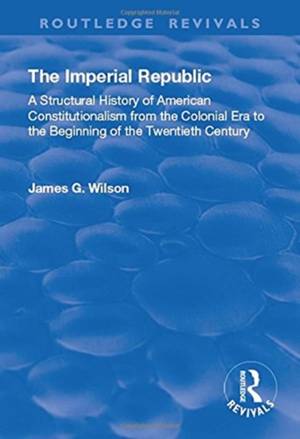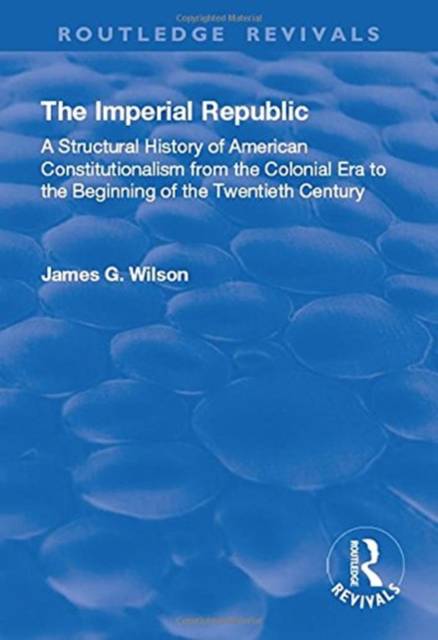
- Afhalen na 1 uur in een winkel met voorraad
- Gratis thuislevering in België vanaf € 30
- Ruim aanbod met 7 miljoen producten
- Afhalen na 1 uur in een winkel met voorraad
- Gratis thuislevering in België vanaf € 30
- Ruim aanbod met 7 miljoen producten
Zoeken
The Imperial Republic
A Structural History of American Constitutionalism from the Colonial Era to the Beginning of the Twentieth Century
James G Wilson
€ 108,45
+ 216 punten
Omschrijving
This title was first published in 2002. The Imperial Republic addresses the enduring relationship that the American constitution has with the concept of empire. Early activists frequently used the word to describe the nation they wished to create through revolution and later reform. The book examines what the Framers of the Constitution meant when they used the term empire and what such self-conscious empire building tells Americans about the underlying goals of their constitutional system. Utilizing the author's extensive research from colonial times to the turn of the twentieth century, the book concludes that imperial ambition has profoundly influenced American constitutional law, theory and politics. It uses several analytical techniques to ascertain the multiple meanings of such fundamental words as empire and republic and demonstrates that such concepts have at least four levels of meaning. Relying on numerous examples, it further concludes that American leaders frequently (even proudly) used the word with some of its most domineering implications.
Specificaties
Betrokkenen
- Auteur(s):
- Uitgeverij:
Inhoud
- Aantal bladzijden:
- 280
- Taal:
- Engels
- Reeks:
Eigenschappen
- Productcode (EAN):
- 9781138727861
- Verschijningsdatum:
- 22/11/2017
- Uitvoering:
- Hardcover
- Formaat:
- Genaaid
- Afmetingen:
- 149 mm x 219 mm
- Gewicht:
- 517 g

Alleen bij Standaard Boekhandel
+ 216 punten op je klantenkaart van Standaard Boekhandel
Beoordelingen
We publiceren alleen reviews die voldoen aan de voorwaarden voor reviews. Bekijk onze voorwaarden voor reviews.











